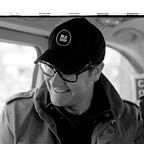My Job Lacks Meaning, What Can I Do?
It’s easy to understand why researchers and commentators are fascinated by the generation coming of age. Google “Millennials” and you get a range of descriptions, including “spoiled,” “unmarried,” “narcissistic,” to the dreaded, “entitled,” or as William Deresiewicz penned “entitled little shit” in his widely-read, polemical essay in this month’s New Republic entitled “Don’t Send Your Kid to the Ivy League.”
But, of course, despite what the advertising and branding gurus try to sell us, generalizing an entire generation isn’t a science. Leading happiness researchers, including Stanford University’s Jennifer Aaker, have found that one of the most important things Millennials really want is “meaningful” work. In a longitudinal study of the choices made by 397 Americans, with Roy F. Baumeister, Kathleen D. Vohs and Emily N. Garbinsky, Aaker reported the findings in the New York Times, by saying, “Those who reported having a meaningful life saw themselves as more other-oriented — by being, more specifically, a “giver.”
Those findings dovetail with research and work done by Adam Grant, a professor at the Wharton School of the University of Pennsylvania and the author of Give and Take: A Revolutionary Approach to Success, which described how “givers” ultimately attain both career and life success, and became a perennial best-seller since its release last year.
At the same time, unlike during the 1960s when public service offered opportunities for meaningful work, the most talented young people are rarely drawn to work in government today — a reflection of atrophied institutions, and stasis. Young people want to make things happen and get things done. Popular mantras from Brooklyn to Detroit to Tulsa, even, now include a desire to “get shit done” or “make shit.” As the comedian and actress Amy Poehler puts it, “I want to be around people that do things. I don’t want to be around people anymore that judge or talk about what to do. I want to be around people who dream and support, and do things.”
The sex appeal of a job at Goldman Sachs or Wall Street has virtually vanished and shifted to Silicon Valley, entrepreneurship, and social entrepreneurship. There’s a meaning in the culture of making a contribution — a desire to be black sheep in a world that has long been dominated by white sheep.
Many have one foot in the old world of say, corporate law, and another with friends and acquaintances pioneering in the new. Fortunately, there are many new bridges to get from old to new, including one-year entrepreneurial fellowship programs such as Fuse Corps or Code for America.
Fuse Corps, an organization based in San Francisco that I cofounded, matches 10-20 mid-career professionals yearly with innovative governors, mayors and community leaders across the U.S. through a unique 12-month fellowship that aims to make local government work better, faster and smarter. The organization identifies concrete projects in local communities in areas such as education, economic development and health care, and deploys its Fuse Corps Fellows as catalysts for change.
Rebecca Center Foster, for instance, worked for years at Goldman Sachs, yet always had a passion for social change and a dedication to magnifying her impact by working across sectors, so she decided to test it for a year as a Fellow. Working closely with the Mayor Lee’s Office of Civic Innovation, and his senior team, Foster has worked on a range of projects at the intersection of finance and innovation, including launching the City’s exploration of pay for success (aka social impact bonds) as a tool to scale up key preventative services aligned with the Mayor’s strategic priorities in workforce development, housing, public health and human services.
Fuse Corps Fellows work to get things done by catalyzing resources to solve social problems in new and creative ways, and in Foster’s fellowship, that has also included a focus on creating a sustainable public-private-philanthropic funding vehicle to support affordable and workforce housing production, much needed as San Francisco experiences rapid growth.
All the while, Fellows get immersed in a Civic Leadership Institute that draws from the best practices of leading for-profit, public and social sector organizations, including McKinsey & Company and the Stanford Institute of Design (the d.school). Each Fellow works directly with a coach throughout the year for on-going professional development .
Fuse Corps is currently accepting applications for four near term fellowship opportunities with the Office of the Mayor of San Francisco. They include leading initiatives such as “Vision Zero,” a drive to bring traffic deaths to zero in the city, and a project to launch the campaign so that all San Francisco public schools, students, and teachers have the right technology to succeed in the 21st century. For more information on the opportunities and becoming a Fuse Corps fellow, see: http://fusecorps.org/join-fuse-corps/#apply-now
If you’re a doer, and more of a black sheep than a white sheep at heart, the opportunity might unlock the formula for more enjoyable and meaningful work, by making some important things happen. Let’s do this.
Peter Sims is a best-selling author and entrepreneur. His latest book is Little Bets: How Breakthrough Ideas Emerge from Small Discoveries.
